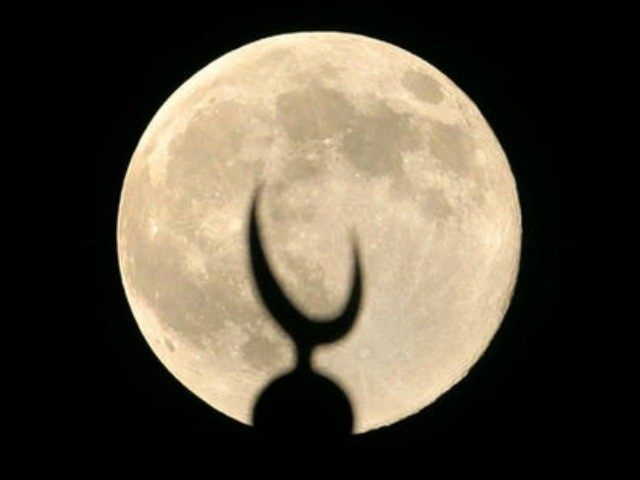Among the news items at the radical Zinn Education Project this month is a post highlighting the work of Alison Kysia, author of “A People’s History of Muslims in the United States: What School Textbooks and the Media Miss,” part of the Zinn Education Project If We Knew Our History series.
The Zinn Education Project supports the use of revisionist historian Howard Zinn’s A People’s History of the United States in middle and high school classrooms throughout the nation. Like Zinn’s A People’s History, the Zinn Project emphasizes “the role of working people, women, people of color, and organized social movements in shaping history,” in the hopes of educating future social justice activists and community organizers in the United States. The Zinn Project claims it now has more than 45,000 teachers who have registered at its site to download teaching materials for their classrooms.
In her 2014 article about the history of Muslims in the United States, Kysia, who has taught history at Northern Virginia Community College-Alexandria and is associated with nonprofit Teaching for Change, says she is disappointed that her students often reference 9/11 as the first time they came to hear of Muslims. To counter this, she teaches a vision of Muslims as an integral part of the fabric of the progressive movement in the United States, with a presence in every social justice struggle along the way.
She writes:
Mainstream textbooks do little to correct or supplement the biases that students learn from the media. These books distort the rich and complex place of Muslims throughout U.S. history. For example, Malik El-Shabazz (consistently referred to first by the name Malcolm X rather than the name he chose for himself before his assassination) is framed as the militant, angry black man, the opposite of the Christian, nonviolent Martin Luther King Jr. Muhammad Ali is another popular representative of Muslims in U.S. history textbooks but is misrepresented through the emphasis on his boxing career rather than his anti-racist activism against the Vietnam War.
Kysia bemoans what she calls “the sanitized story of Christopher Columbus” taught in U.S. history textbooks that she says overlooks the Muslim-led revolt against Columbus’ son Diego on Christmas Day in 1522.
“Armed with the machetes they used to cut cane, these rebels, including enslaved West African Muslims, succeeded in killing a number of colonial settlers before the insurrection was quelled; of the 15 bodies recovered, nine were Europeans,” she writes.
Citing Michael Gomez’s Black Crescent: The Experience and Legacy of African Muslims in the Americas, Kysia states Muslims were among those who first resisted the European settlers and were described as rebellious and belligerent in various documents from the era.
“It’s essential that students know that resistance to colonial domination has always been a part of our history – and Muslims played a role in this resistance from the earliest days,” she writes.
Most slaves in America, by the early nineteenth century, were embracing Christianity, particularly during the period of religious revivalism. Nevertheless, Kysia objects to what she views as the presentation of slaves in traditional U.S. history textbooks as “a monolithic group, absent of history, culture, and scholarship.” She paints a picture of a “multicultural diversity” among African slaves – with Muslims included, and names an individual Muslim man, Mohammed Ali b. Said, who fought in the Civil War in the 55th Regiment of Massachusetts Colored Volunteers.
Muslims, Kysia states, were part of “the rich history of resistance to Jim Crow,” and also had a presence in union activism. She tells the story of Nagi Daifallah, a Yemeni Muslim farmworker and member of United Farm Workers of America, who was murdered during the 1973 California grape strike.
Continuing with Muslim contributions to the progressive movement in the United States, Kysia points to Linda Sarsour, executive director of the Arab American Association of New York, which recently celebrated Mayor Bill de Blasio adding Muslim holidays to the public school calendar. Sarsour, Kysia observes, is an amnesty supporter and critic of stop-and-frisk. She protests against the Muslim surveillance program sponsored by the New York Police Department (NYPD) and the CIA.
On her blog at the end of January, Sarsour wrote:
In many parts of the United States, if you want to win an election, you need talking points full of misinformation and bigotry towards Muslims to scare the wits out of non-Muslim Americans in to voting for you (and others to fund your campaign). Events in the Middle East simply provide more fuel to an already-raging fire, and convince officials elected to serve all of their constituents that their inappropriate and bigoted comments will not only go unchallenged but will be applauded.
“Students need these stories of Muslims throughout U.S. history in order to talk back to the dominant media stereotypes of Muslims as lying, violent, brown foreigners,” Kysia concludes. “If we gave students the historical examples in this article and more, they would realize that the history of Muslims in the United States is not limited to 9/11 and, in fact, spans from the late 15th century through today.”
According to the Zinn Project, Kysia has also recently defended A People’s History and curricula by researching a student-led resistance crusade against McCarthyism in the 1950s, and locating former Indiana University (IU) student Bernard Bray, one of the few surviving members of the Green Feather Movement, a protest movement against censorship and what Kysia refers to as the “larger McCarthy witch hunt.”
“The Green Feather Movement inspired solidarity actions on campuses throughout the country, illustrating the power of student activism,” Kysia wrote in 2013. “News of the IU movement was publicized in both local and college newspapers throughout the country as well as The Young Socialist Challenge, the bulletin of the Young People’s Socialist League.”

COMMENTS
Please let us know if you're having issues with commenting.